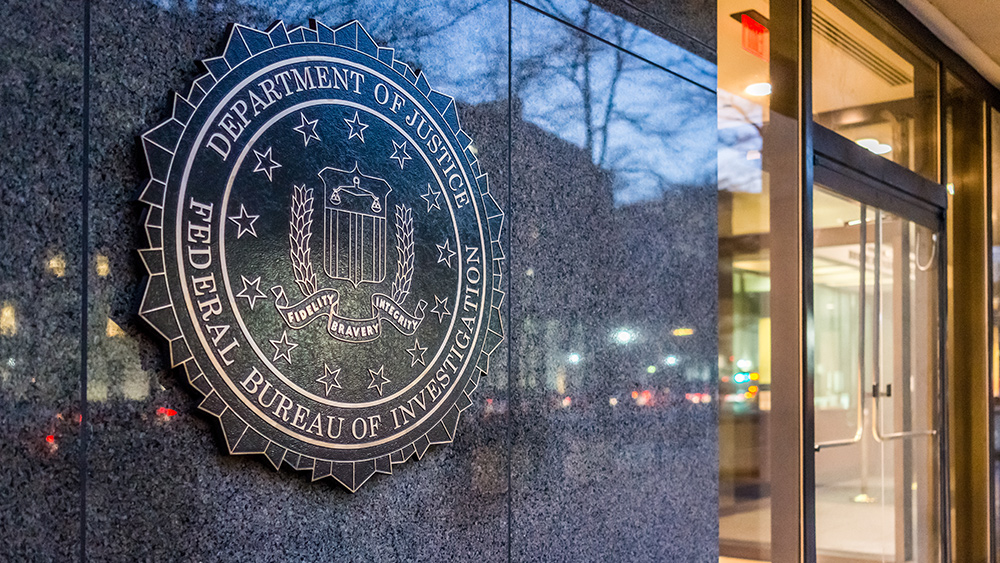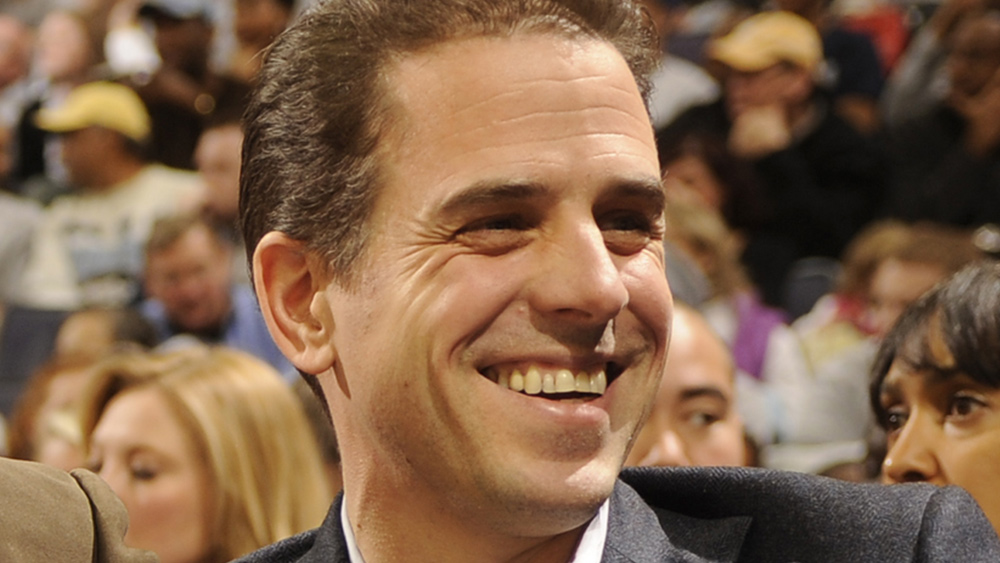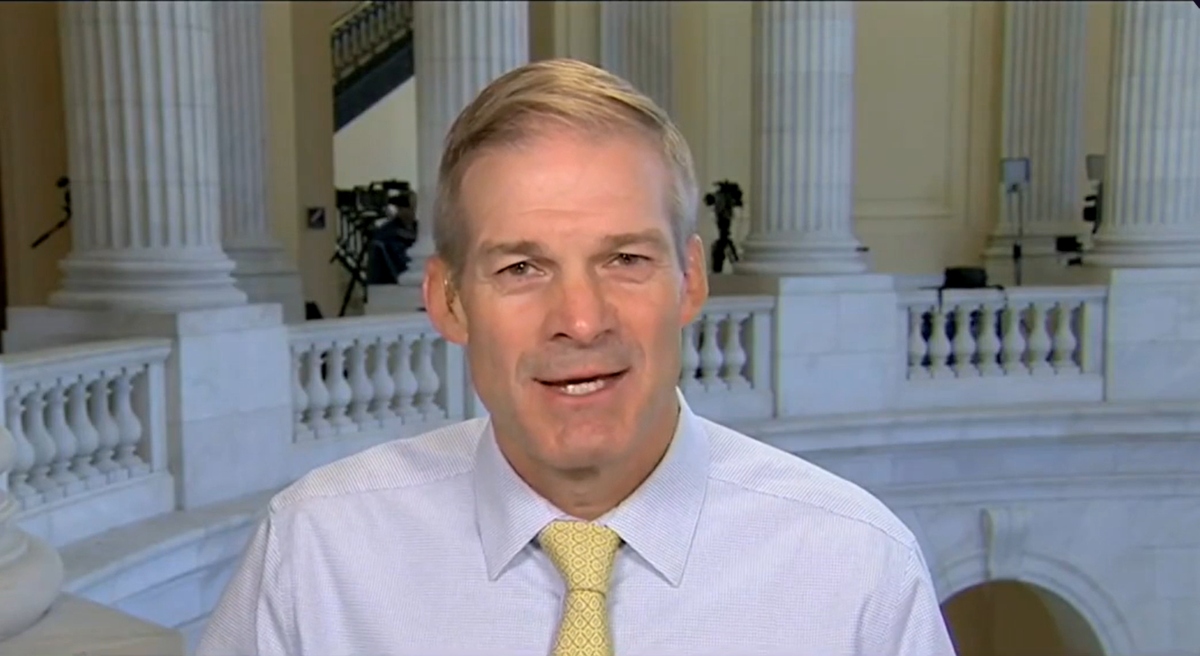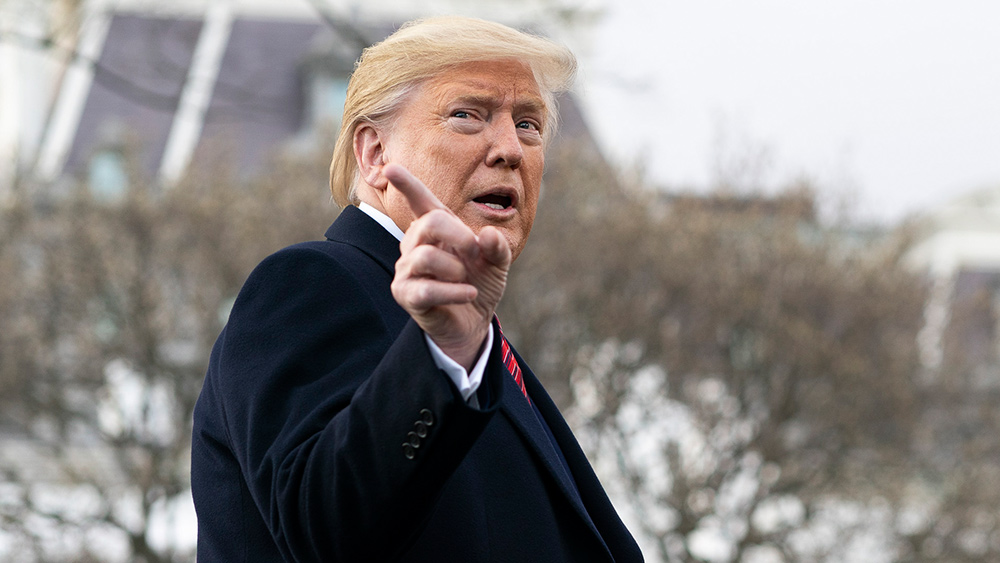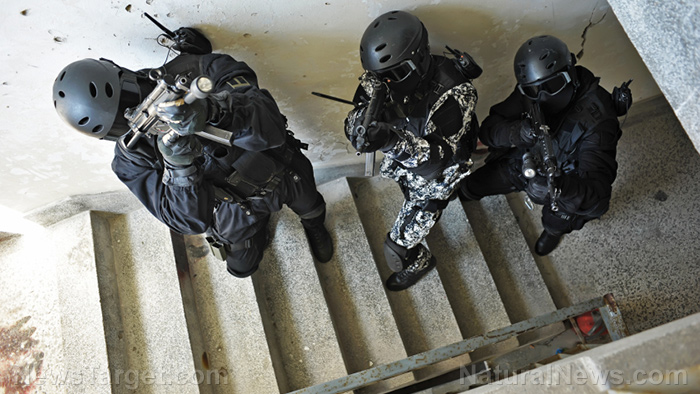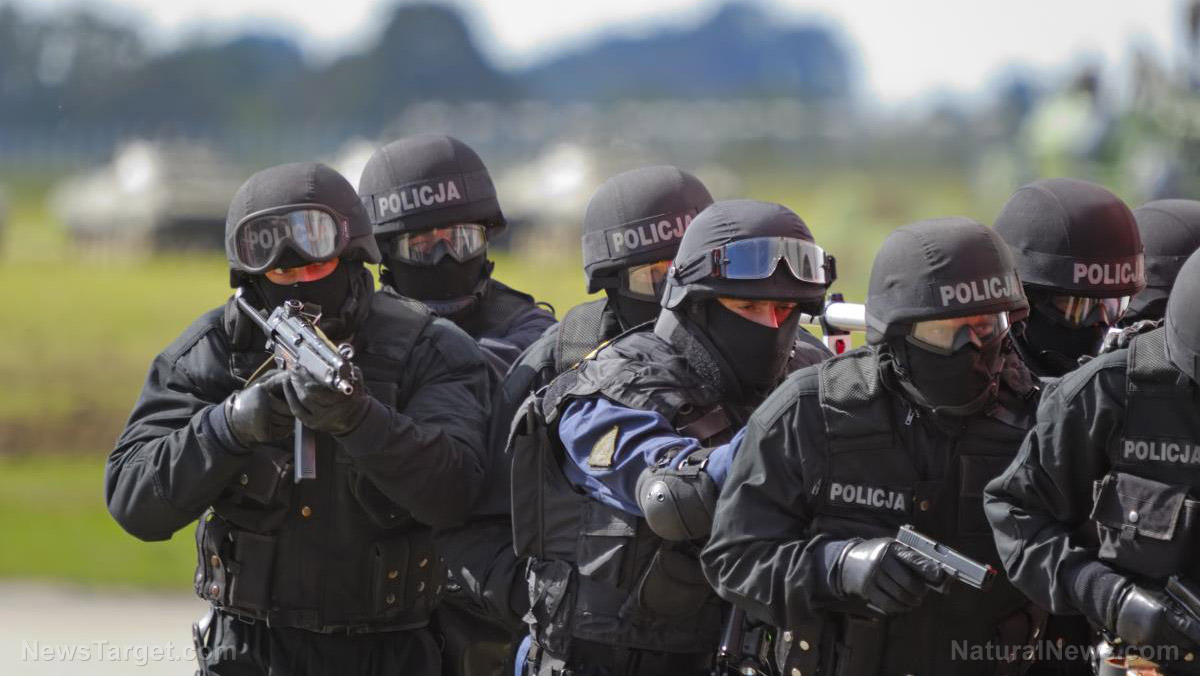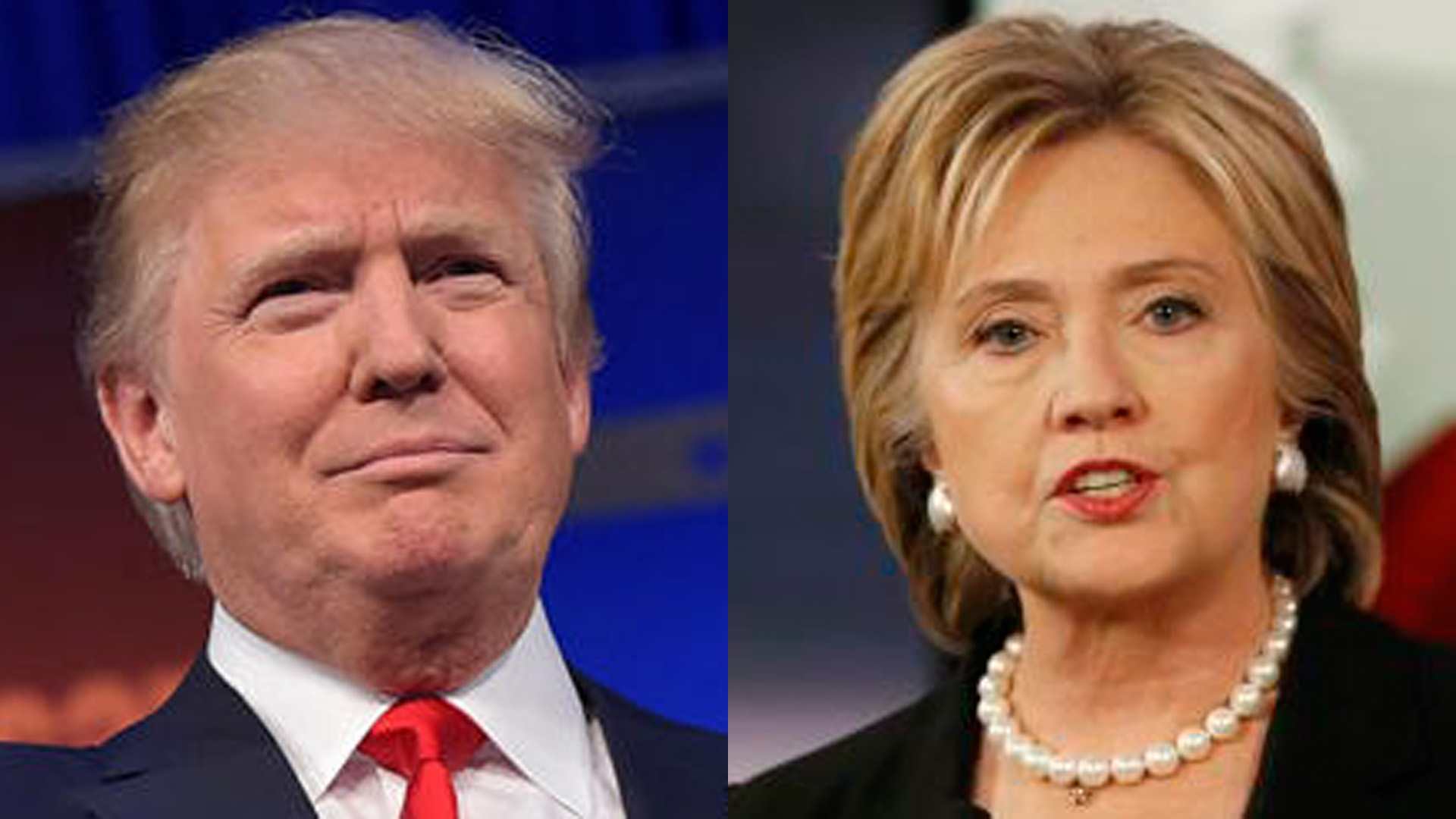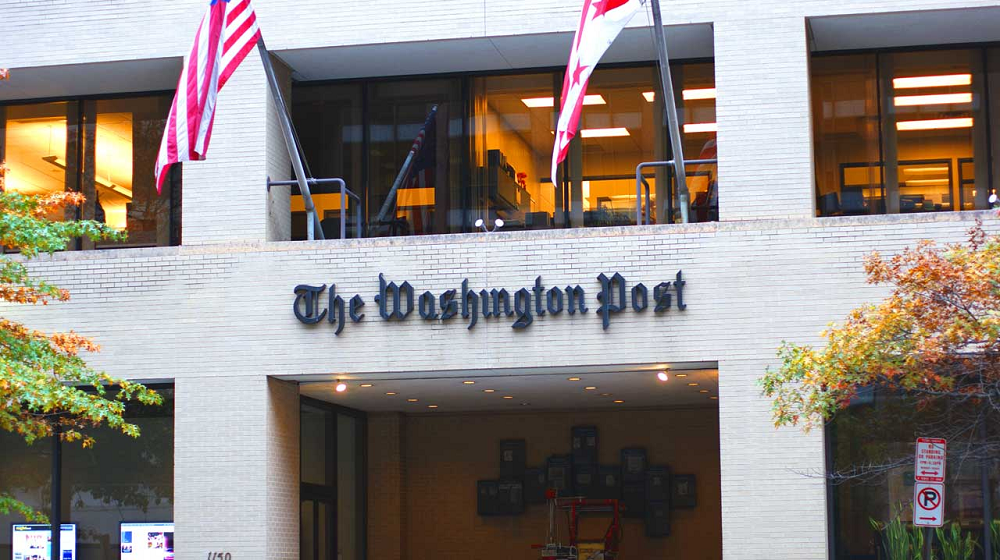Think the FBI deserves the benefit of the doubt? This laundry list of corruption should make you think again
08/22/2022 / By News Editors
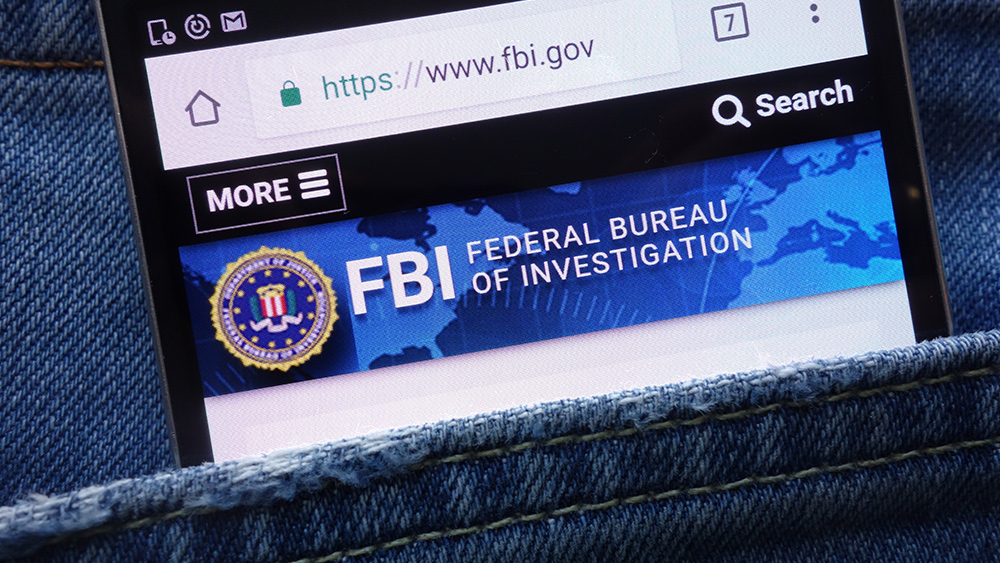
Can the FBI be trusted? A Federalist analysis of agency lies over the last decade is an unequivocal no.
(Article by Tristan Justice republished from TheFederalist.com)
FISA Warrants
In the summer of 2016, FBI bureaucrats launched a deep-state operation, known as Crossfire Hurricane, to thwart then-candidate Trump’s presidential ambitions. It began by targeting Trump campaign foreign policy adviser George Papadopoulos and quickly branched out as bureaucrats expanded their surveillance. The spy agency used the Foreign Agents Registration Act (FARA) as a legal pretext to investigate and spy on Papadopoulos, in addition to former White House national security adviser Michael Flynn, former Trump campaign manager Paul Manafort, and former Trump adviser Carter Page. Several were interviewed by undercover FBI informant Stefan Halper, whose own investigation would prove a bust.
According to a declassified transcript between Papadopoulos and a Crossfire Hurricane confidential human source (CHS), Papadopoulos repeatedly denied the Trump campaign was working with Russian-backed entities to capture the 2016 election. The FBI, however, wrote off Papadopoulos’s recorded answers as rehearsed and omitted his denials of campaign collusion with overseas actors in FISA court warrant applications and renewals. These were two of the 17 “significant inaccuracies and omissions” identified in the Department of Justice (DOJ) inspector general’s blockbuster report on the investigation in December 2019.
Papadopoulos, who pled guilty to making a false statement to the FBI in a perjury trap, was far from the only individual to face political persecution from the federal government’s dystopian investigation.
Not one of the four FISA warrants obtained by the FBI was legally justified, according to DOJ Inspector General Michael Horowitz’s report. In fact, at least two of the warrant applications to spy on Page were declared illegal by a federal judge. Following Horowitz’s blistering report outlining FBI misconduct throughout the entire operation, another federal judge declared that agency malfeasance “calls into question whether information contained in other FBI applications is reliable.”
Subsequent reporting revealed gross abuses of power within the FBI to prosecute political opponents. According to Horowitz, the FBI’s FISA warrants “relied entirely” on DNC-funded opposition research compiled by former British intelligence official Christopher Steele known as the “Steele dossier.” The dossier, which outlined supposed Trump-Russia collusion and has since been thoroughly debunked, included salacious allegations such as supposed “pee tapes” featuring Trump engaging in golden showers with Russian prostitutes at a Moscow hotel.
The FBI knew the dossier lacked credibility as early as January 2017 and knew Steele’s material itself contained Russian disinformation. Desperate to continue their deep-state operation, however, officials lied to the FISA court about Steele’s credibility and hid incriminating info related to the former British intelligence official who was later fired over leaks to the press. An 18th omission, overlooked by the inspector general’s report but documented by Federalist Senior Legal Correspondent Margot Cleveland, was that Steele’s sources did not include the ones he developed as a British official.
Even after Steele’s termination as a reliable source, DOJ attorney Bruce Ohr continued to feed information from Steele to the FBI over the course of its investigation. Steele met with Ohr 12 times after the former’s tenure ended as a confidential human source for the bureau, according to the inspector general. Ohr also promoted his wife’s opposition research to FBI investigators and did not disclose she was paid by Fusion GPS, the DNC-contracted firm that commissioned the Steele dossier.
The FBI never told the FISA court that the Trump dossier written by a source who was fired for lying, did not undergo independent verification, and was funded by Hillary Clinton and the DNC.
Despite the overt abuse of the nation’s surveillance apparatus to spy on political opponents, only one FBI official has faced criminal conviction for his role in the probe. In January last year, former FBI attorney Kevin Clinesmith was sentenced to just 12 months probation after pleading guilty to fabricating evidence to obtain a FISA warrant. By December, Clinesmith was re-admitted to the D.C. Bar Association in good standing.
Steele’s primary sub-source, Igor Danchenko, was indicted in November on five counts of making false statements to the FBI. In May, a D.C. jury acquitted former Clinton campaign attorney Michael Sussmann on charges of lying to the FBI when submitting supposed evidence of Trump-Russian collusion to federal investigators.
Misleading Congress
Following the collapse of the grand Russia-collusion hoax, lawmakers on Capitol Hill began demanding answers about FBI misconduct. Former FBI Director James Comey lied to Congress, claiming the bureau was just investigating four individuals, not the Trump campaign, in a dubious spin.
“Late July of 2016, the FBI did, in fact, open a counterintelligence investigation into, is it fair to say the Trump campaign or Donald Trump himself?” asked then-Rep. Trey Gowdy, R-S.C., in a 2018 hearing.
“It’s not fair to say either of those things, in my recollection,” Comey said. “We opened investigations on four Americans to see if there was any connection between those four Americans and the Russian interference efforts. And those four Americans did not include the candidate.”
Horowitz also contradicted the FBI in a December 2019 hearing on the release of his report documenting FISA abuses. In September 2017, the FBI told Sen. Chuck Grassley, R-Iowa, that the bureau gave the Trump campaign a defensive briefing about Russian interference in the 2016 race.
“In August of 2016 the FBI provided a counterintelligence defensive briefing to then candidate Donald Trump and other senior campaign officials,” wrote FBI Assistant Director of Congressional Affairs Gregory Brower in response to a letter from Grassley. “This defensive briefing was conducted by an experienced FBI counterintelligence agent and focused on the broad range of threats posed by foreign intelligence entities.”
Horowitz testified before the Senate Judiciary Committee that there was no briefing given.
Misleading DOJ Leaders
Not only was Congress led astray as FBI officials conducted a rogue operation to defend the incumbent regime, but so was senior leadership in President Trump’s DOJ.
Handwritten notes revealed in the Sussmann trial exposed how FBI agents sought to cover up malicious misconduct, wherein DOJ leaders tasked with FBI oversight were misled about the investigation’s progress. The notes show FBI agent Peter Strzok wrongly told DOJ supervisors the surveillance warrant on Page had been “fruitful.” Strzok also concealed knowledge that Steele’s sources were not credible and claimed instead that the dossier was “CROWN reporting” from MI6, the CIA’s British counterpart. The FBI said the dossier was being used to examine the RNC and Trump campaign’s effort to soften the GOP platform on NATO and Crimea for Russian energy stocks, but the document made no mention of NATO or Crimea.
Strzok also said Trump’s 2016 joke about Russia uncovering Clinton’s 30,000 deleted emails triggered Crossfire Hurricane, with an Australian diplomat tipping off the government about Papadopoulos at the American embassy in London. The tip that Papdopoulos was coordinating collusion between the Trump campaign and Russia, however, came before Trump made the joke.
Strzok is the same agent whose text messages show he conspired with his mistress and FBI colleague, attorney Lisa Page. Strzok, a lead investigator for Crossfire Hurricane, assured Page of a mysterious “insurance policy” in place if Trump were to be elected, likely in reference to the agency’s inside operations. Page, according to the DOJ inspector general’s 2019 report, told colleagues to go easy on investigating Clinton because “she might be our next president.”
When Page fretted that Trump might actually win the 2016 contest, Strzok assured his romantic partner, “we’ll stop it.”
Misleading Trump
Comey thought the Crossfire Hurricane investigation was important enough to brief outgoing President Barack Obama on the probe but kept Trump in the dark. In fact, Comey later confirmed that he told Trump three times the president was not being investigated and refused to tell him Clinton funded the dossier.
Michael Flynn
In June 2020, a federal judge ordered that all charges be dropped against Flynn, whom Trump subsequently pardoned in the waning days of his administration. Prior to his exoneration, Flynn was facing heavy fines and prison time for making false statements to federal officials in another perjury trap orchestrated by Comey, who bragged about the setup in the first week of the Trump White House.
According to Special Counsel Robert Mueller, Flynn lied to a pair of FBI agents about conversations with Russian Ambassador Sergei Kislyak as the incoming national security adviser. Flynn, prosecutors claimed, spoke with Kislyak about financial sanctions against Russian individuals after the 2016 election and then lied about it during an interview with Comey’s agents. Sending a pair of agents to question a senior White House official in the Situation Room, Comey said at a 2018 conference, was “something I probably wouldn’t have done or even gotten away with in a more organized investigation, a more organized administration.”
“We placed a call to Flynn and said, ‘Hey, we’re sending a couple guys over, hope you’ll talk to them.’ He said ‘sure,’” Comey explained at the 92nd Street Y conference. “Nobody else was there, they interviewed him in a conference room at the White House situation room, and he lied to them.”
Flynn initially pled guilty to making false statements to the FBI before firing his attorneys and hiring new representation to withdraw his guilty plea. His reversal followed the release of declassified transcripts, which revealed Flynn never spoke with Kislyak about sanctions. The two only discussed expulsions of Russian individuals under a different process. Handwritten notes from the FBI agents also revealed the sole purpose of their questioning was “to get him to lie so we can prosecute him or get him fired.” A bizarre 2017 inauguration day email by Susan Rice to herself also revealed Comey knew there was no legitimate reason to question Flynn.
Andrew McCabe
Former FBI Deputy Director Andrew McCabe was fired from his top role at the bureau for lying to the agency inspector general four times over multiple abuses during his tenure in senior leadership. Those abuses included efforts to set up former White House Chief of Staff Reince Priebus for obstruction charges, the sabotage of an investigation into Clinton emails on Anthony Weiner’s laptop before the 2016 election, and failure to report conflicts of interest. While running for a Virginia state Senate seat in 2015, McCabe’s wife accepted a political donation from a close Clinton ally as her husband was tasked with investigating the former secretary of state.
A 2018 DOJ inspector general report blasted McCabe as a serial leaker who lied about it. That same year, a letter from Grassley shined a spotlight on McCabe’s purchase of a $70,000 table on taxpayers’ dime that the agency sought to cover up.
Clinton Emails
The FBI repeatedly told journalists there was no evidence that a foreign power had reviewed Clinton’s emails that she improperly handled on a private server. According to an inspector general report in 2018, however, texts show they almost certainly did, “at least one of them classified,” as Federalist Senior Editor David Harsanyi wrote.
“It is more accurate to say,” read a text from Strzok, “that we know foreign actors obtained access to some of her emails (including at least one Secret one) via compromises of the private email accounts of some of her staffers.”
Weiner Laptop
In 2018, Comey told lawmakers over the course of the investigation into Clinton’s emails that agency officials thoroughly reviewed the laptop belonging to Clinton aide Huma Abedin and her now-ex husband Anthony Weiner. The FBI was able to accomplish such a feat within a short timeframe “thanks to the wizardry of our technology” enabling agents who worked “night after night after night” to comb through the remaining material before the 2016 election.
“But virtually none of his account was true,” explained RealClearInvestigations’ Paul Sperry.
In fact, a technical glitch prevented FBI technicians from accurately comparing the new emails with the old emails. Only 3,077 of the 694,000 emails were directly reviewed for classified or incriminating information. Three FBI officials completed that work in a single 12-hour spurt the day before Comey again cleared Clinton of criminal charges.
Roger Stone
In 2019, former Trump associate Roger Stone was raided by the FBI after being indicted by Mueller. A CNN camera crew happened to be the only network present at Stone’s Fort Lauderdale home before the sunrise raid, suggesting the friendly press had been tipped off in advance. The FBI, however, refused to comply with a Federalist open records request for any and all emails to or from CNN on the day of the raid.
Jan. 6 Capitol Riot
The Jan. 6 saga has become the sequel in Democrats’ efforts to indict Trump, before FBI agents hatched a plot to go after the former president over supposed espionage.
In October, the bureau refused to offer House Republicans conducting their own independent investigation of the Capitol riot the same material given to congressional Democrats. The FBI’s refusal, the agency claimed, was because officials were already working with House Speaker Nancy Pelosi’s Select Committee on Jan. 6. Pelosi’s committee, however, was established in violation of House rules. Rep. Jim Banks, R-Ind., the minority appointment as ranking member, is entitled to the documents presented to Democrats.
Senior FBI officials have also refused lawmakers’ questions about how many informants were present at the Capitol on Jan. 6 and stonewalled inquiries surrounding Ray Epps, the mysterious figure who disappeared from the most-wanted list after he encouraged rioters to swarm the Capitol.
At an Aug. 4 Senate hearing, FBI Director Christopher Wray sought to downplay agency negligence, claiming “we did not have any credible intelligence that pointed to thousands of people breaching the Capitol.” But according to Newsweek, the agency deployed commandos with “shoot to kill authority,” and even Capitol Hill parking attendants knew there were going to be mass protests. The FBI has also been less than forthcoming about a pair of pipe bombs planted at the RNC and DNC headquarters.
At the same time, the FBI has embarked on a nationwide manhunt, to incarcerating demonstrators who have been declared such a threat to the republic over trespassing that they’ve been denied a fair and speedy trial and held in detention for more than 18 months.
Julian Khater, one of two accused of assaulting a Capitol Police officer with pepper spray and whose case has been documented by Julie Kelly at American Greatness, appears to have been outright coerced into making an unconstitutional confession. Khater was detained in March 2021 and has remained in federal custody ever since after intense interrogation without an attorney present.
Kamala Harris on Jan. 6
The presence of Vice President Mike Pence and then-Sen. Kamala Harris at the U.S. Capitol has been the basis for nearly 800 people being charged with at least one count of violating 18 U.S. Code, section 1752, according to Kelly, which indicates that any building or complex hosting the vice president is a restricted area and therefore closed to the public.
“But the Justice Department recently was forced to admit that Harris was not in the building for most of the day on January 6,” Kelly reported, highlighting that Harris, at the time, remained a U.S. senator, not vice president. In the late morning, Harris was moved to the DNC headquarters where a pipe bomb had supposedly been planted.
“Prosecutors have begun amending language in court filings to reflect the fact Harris was not inside the Capitol despite making the assertion in thousands of charging documents,” Kelly wrote.
March 4, 2021
The FBI released a joint memo with the Department of Homeland Security warning that “domestic extremists” were preparing to launch an insurrection by overwhelming the Capitol and removing Democratic lawmakers “on or about the 4th of March.”
Nothing happened.
Hunter Biden Suppression
In July, Grassley’s office published a blockbuster whistleblower report wherein senior agency officials alleged that the bureau is actively trying to sabotage Trump and provide cover for President Joe Biden’s son, Hunter.
“Multiple FBI whistleblowers, including those in senior positions,” Grassley’s office wrote in a press release, “are raising the alarm about tampering by senior FBI and Justice Department officials in politically sensitive investigations ranging from election and campaign finance probes across multiple election cycles.”
Washington Field Office Assistant Special Agent in Charge Timothy Thibault and Director of Election Crimes Branch Richard Pilger, the whistleblowers alleged, coordinated to amplify defamatory information against Trump while giving cover to Hunter Biden, dismissing Biden intelligence as disinformation.
The agency reportedly knew of Hunter Biden’s abandoned laptop full of incriminating information on the first family as early as 2019, and Grassley’s whistleblower report highlights how officials may have undermined DOJ investigations into Hunter Biden’s finances in Delaware and Pittsburgh. In March, FBI Assistant Director of the Cyber Division Bryan Vorndran told lawmakers he did not know the whereabouts of Hunter Biden’s laptop.
Gretchen Whitmer Plot
In October 2020, the FBI revealed that a plot to kidnap Michigan Democrat Gov. Gretchen Whitmer had been heroically foiled by federal law enforcement. A group of far-right militiamen, the story goes, conspired to kidnap the governor and try her as a “tyrant” in Wisconsin. In July last year, however, BuzzFeed revealed that at least 12 people involved were FBI informants orchestrating another entrapment.
“The problem with the case is that it appears the FBI, through informants and undercover agents, hatched the kidnapping plot, served in the key leadership positions of the militia group, trained the militia members in military tactics, actively recruited participants, and funded much of the militia’s activities,” reported former CIA Paramilitary Operations Officer Max Morton. “Then, when various members of the Watchman militia became uncomfortable with the kidnapping plot, with several quitting, the FBI’s primary informant pushed the plot along, eventually becoming the militia group’s leader.”
In April, a jury refused to convict four of the 14 defendants charged. Two were found not guilty, another two concluded the trial with no verdict, and another two took plea deals.
Ralph Northam Plot
Dan Chappel, the primary informant in the Whitmer kidnapping conspiracy, targeted a senior disabled veteran named Frank Butler using the same formula to go after then-Virginia Gov. Ralph Northam, another Democrat.
“Just as in the Whitmer plot, Chappel lured Frank Butler into attempting to build an explosive device,” Kelly explained in American Greatness. “Chappel also invited Butler to a field training exercise in Wisconsin during the last weekend in October, an excursion attended by some defendants in the Whitmer caper.”
Unlike the FBI’s victims in the Whitmer plot, however, Butler did not participate and has not been charged with any crime.
Sen. Ted Stevens’ Conviction
Former Sen. Ted Stevens, R-Alaska, became the victim of FBI corruption in 2008 when forced to defend himself on charges of false statements to federal officials. Stevens lost his seat as the scandal played out, only to be later exonerated when a judge conducting an independent investigation concluded that prosecutors inappropriately hid evidence.
Prosecutors indicted Stevens on charges that he had concealed that he did not pay full value for renovations on an Alaskan cabin less than 100 days out from the 2008 election.
“In fact, Ted Stevens and his wife had paid more than $160,000 for renovations that independent appraisers valued at less than $125,000 at the time,” Roll Call reported.
Prosecutors, however, secured a conviction by hiding evidence that incriminated their own witnesses, one of whom came up with testimony right before trial, with inconsistent statements concealed from the defense, according to the D.C. paper.
Likewise, the government concealed evidence that its star witness had suborned perjury from an underage prostitute with whom the star witness had an illegal sexual relationship. And the government concealed evidence that another witness — whom the government flew back to Alaska away from the Washington, D.C., trial after their mock cross-examination of him went poorly — had told the senator that the bills he received and promptly paid included all of the work that was done. Government prosecutors mocked Stevens when he explained that on the stand — all the while knowing that they had a witness who would have supported him, but whom they had removed from the trial.
Rep. Jeff Fortenberry’s Conviction
Former Rep. Jeff Fortenberry, R-Neb., was sentenced to two years of probation with a $25,000 fine and 320 hours of community service in March after a Los Angeles jury convicted him of lying to the federal government after he was entrapped by the FBI.
The saga began in 2019 when a pair of FBI agents showed up at Fortenberry’s Nebraska home ostensibly over a national security issue, not a criminal investigation. Prosecutors ultimately convicted Fortenberry for scheming to conceal material facts to federal officials and two false statements to the FBI.
One false statement was attributed to Forteberry not recognizing a person whose 10-year-old picture was presented to him by agents on their trip to his Nebraska residence. In July 2019, the FBI lied to Fortenberry and his attorney, Gowdy, claiming Fortenberry was not under federal investigation when he was. Fortenberry resigned from the House during his ninth term following conviction.
Pulse Nightclub Shooting
In June 2016, a 29-year-old gunman named Omar Mateen stormed the gay Orlando nightclub Pulse, killing 49 and injuring 53 more in the name of Islamic terrorists killed in Iraq and Syria. Mateen’s father, Seddique, was an FBI informant, whom documents published by The Intercept suggest convinced the bureau to stop investigating his son.
The bureau turned instead to charging Mateen’s widow, Noor Salman, with material support and obstruction of justice. Prosecutors sought to conceal the father’s status as an FBI informant, according to the Intercept, in pursuit of Salman’s conviction.
“Seddique Mateen has not faced criminal charges despite a tip to the FBI that he raised money for terrorism in Pakistan, and an ongoing investigation into money transfers he allegedly made to Turkey and Afghanistan,” the Intercept reported. “Omar Mateen was researching flights to Turkey at the same time that his father was sending payments there, according to defense lawyers’ summary of FBI evidence.” Salmon was apparently unaware of their possible plans to travel to either country.
Meanwhile, the New York Times reported on Salmon’s 2018 trial:
Testimony from an F.B.I. agent revealed that prosecutors knew early on, but did not reveal, that one of their crucial initial pieces of evidence — that Ms. Salman had admitted driving by the nightclub with her husband in the days before the attack — most likely did not happen.
Salmon was ultimately acquitted after a 12-hour jury deliberation.
Texas Synagogue Attack
On Jan. 15, 44-year-old Malik Faisal Akram took hostages in a Texas synagogue near Dallas and demanded the release of Aafia Siddiqui, a Pakistani national also known as “Lady Al Qaeda” serving an 86-year sentence for assault and attempted murder of federal agents and military personnel.
Matthew J. DeSarno, the FBI’s special agent in charge of the Dallas field office, said the attack on a synagogue had nothing to do with targeting Jews.
“We do believe from our engagement with this subject that he was singularly focused on one issue, and it was not specifically related to the Jewish community,” DeSarno said at a press conference.
But as Chuck DeVore of the Texas Public Policy Foundation reported, Akram “was heard to say via the live stream that operated from the synagogue for much of the incident that he chose it because he thought it was the closest assemblage of Jews to the federal facility holding Siddiqui.”
“There are about 1,000 churches in the Fort Worth area within a half-hour drive of Siddiqui’s place of incarceration, compared to seven Jewish centers of worship,” DeVore wrote. “But sure, Special Agent DeSarno, the terrorism was ‘not specifically threatening to the Jewish community.’”
Congressional Baseball Shooter
The FBI designated the death of a shooter who attempted to gun down Republican lawmakers at a 2017 congressional baseball practice as motivated by a desire to commit “suicide by cop.” Last year, the bureau doubled down on the designation.
“It’s fair to say the shooter was motivated by a desire to commit an attack on members of Congress and then knowing by doing so he would likely be killed in the process,” Jill Sanborn, the executive assistant director of the FBI, told the House Appropriations subcommittee.
“The FBI still doesn’t know exactly what the shooter was up to,” McCabe, now a CNN contributor, said last summer. “They never really uncovered the sort of detailed evidence that laid out a specific plot or an objective.”
On the contrary, the 66-year-old shooter who almost killed House GOP Whip Steve Scalise left behind a long record of extremist social media posts dripping with contempt for Republicans, even branding them as the “Taliban of the USA” on Facebook. The FBI also found a list of six congressmen in a rented Virginia storage locker but refused to call it a “hit list.”
Inflating Extremism Cases
Whistleblowers claim the FBI is inflating the number of “domestic violent extremism” cases to fit President Biden’s overarching narrative that home-grown extremism is the nation’s worst national security threat.
“From recent protected disclosures, we have learned that FBI officials are pressuring agents to reclassify cases as ‘domestic violent extremism’ even if the cases do not meet the criteria for such a classification,” Rep. Jim Jordan, R-Ohio, wrote in July, detailing whistleblower allegations in a letter to Wray. “Given the narrative pushed by the Biden Administration that domestic violent extremism is the ‘greatest threat’ facing our country, the revelation that the FBI may be artificially padding domestic terrorism data is scandalous.”
Ignoring Larry Nassar Abuse
The FBI turned a blind eye as former USA gymnastics doctor Larry Nassar abused dozens of young female athletes. According to the DOJ inspector general last year, “senior officials in the FBI Indianapolis Field Office failed to respond to allegations of sexual abuse of athletes by former USA Gymnastics physician Lawrence Gerard Nassar with the urgency that the allegations required.”
“We also found that the FBI Indianapolis Field Office made fundamental errors when it did respond to the allegations, failed to notify the appropriate FBI field office (the Lansing Resident Agency) or state or local authorities of the allegations, and failed to take other steps to mitigate the ongoing threat posed by Nassar,” the inspector general added.
Kyle Rittenhouse
Kyle Rittenhouse was acquitted of politicized charges brought against him last summer when he shot three men in self-defense. Two died, and contrary to the media’s racialized coverage of the trial, all three were white.
During the proceedings, wherein an 18-year-old Rittenhouse (now 19) faced life in prison, prosecutors used aerial footage from FBI surveillance in their effort to convict Rittenhouse. When the defense tried to access “the rest” of the FBI footage from the night in question, however, the bureau claimed it no longer existed.
Demonizing James Rosen
In 2010, the Obama administration began aggressive surveillance of journalist James Rosen who was working for Fox News at the time. The Justice Department tracked Rosen by falsely claiming the reporter was a potential terrorist collaborator and accused him of violating the Espionage Act.
The Obama administration tracked Rosen’s movements and, according to Fox News, even seized the phone records of his parents.
Deadly Wrongful Conviction
A 2007 ruling against the government cost the FBI $102 million after agency misconduct resulted in the deaths of two men. In order to protect a mob informant, the FBI was caught deliberately withholding evidence in a case that led to the wrongful convictions of four men, three of which were sentenced to death, two of whom died before true justice was served.
Martha Stewart
Most Americans today believe Martha Stewart was convicted 20 years ago on charges of “insider trading.” Her actual conviction that sent her to federal prison was conspiracy to lie about the crime for which she was never charged over a trade that had already taken place.
Stewart’s quarter-million-dollar sale of ImClone stock served as the pretext for which federal prosecutors, led by none other than Comey, went after the media mogul. Comey’s case, however, was so weak that prosecutors pursued a novel legal theory to secure a conviction.
According to the theory they pursued, Stewart engaged in “securities fraud” when she declared that she was innocent, which prosecutors said was designed to prop up the value of her company, Martha Stewart Living Omnimedia. In other words, Stewart’s proclamation of innocence was declared a crime by federal law enforcement, and she spent six months incarcerated.
Mar-a-Lago Raid
The Department of Justice appears to be following the same playbook agency officials have used for years in the Democrats’ series of manufactured scandals to bring down Trump.
Last week, the FBI executed an unprecedented raid of the former president’s Florida residence ostensibly conducted to enforce the Presidential Records Act. Federal officials confiscated more than a dozen boxes from the 128-room mansion pursuant to the rarely prosecuted law, claiming Trump harbored classified information related to the nation’s nuclear secrets. Leaked claims to the Washington Post that Trump possessed sensitive nuclear records, which came hours after Attorney General Merrick Garland professed the agency’s professionalism, however, showcase the sensationalism crafted by officials desperate to justify the raid, which included more than 30 agents.
At a press conference last week, Garland admitted to personally signing off on the raid he called “narrowly scope[d].” An examination of the warrant, however, reveals that it authorized FBI agents to seize any and every document Trump came into contact with as president. Furthermore, none of the three criminal statutes the DOJ cited in the warrant required the material to be classified, according to Cleveland.
The FBI also attempted to dispel claims that federal officials stripped the president of his passports, telling CBS News that the agency was not in possession of the documents after Trump blasted that they had been confiscated. An email made public by Trump spokesman Taylor Budowich, however, exposed the FBI’s lie. The email from Jay Bratt, the chief of the counterintelligence and export control section in the DOJ’s National Security Division, confirms that “the filter agents seized three passports belonging to President Trump, two expired and one being his active diplomatic passport.”
Read more at: TheFederalist.com
Submit a correction >>
Tagged Under:
big government, conspiracy, corruption, deception, deep state, domestic terrorism, Donald Trump, false-flag, fascism, FBI, gun violence, Hillary Clinton, lies, police state, politics, shootings, spying, surveillance, traitors, violence
This article may contain statements that reflect the opinion of the author
RECENT NEWS & ARTICLES
COPYRIGHT © 2017 FBICORRUPTION.NEWS
All content posted on this site is protected under Free Speech. FBICorruption.news is not responsible for content written by contributing authors. The information on this site is provided for educational and entertainment purposes only. It is not intended as a substitute for professional advice of any kind. FBICorruption.news assumes no responsibility for the use or misuse of this material. All trademarks, registered trademarks and service marks mentioned on this site are the property of their respective owners.


